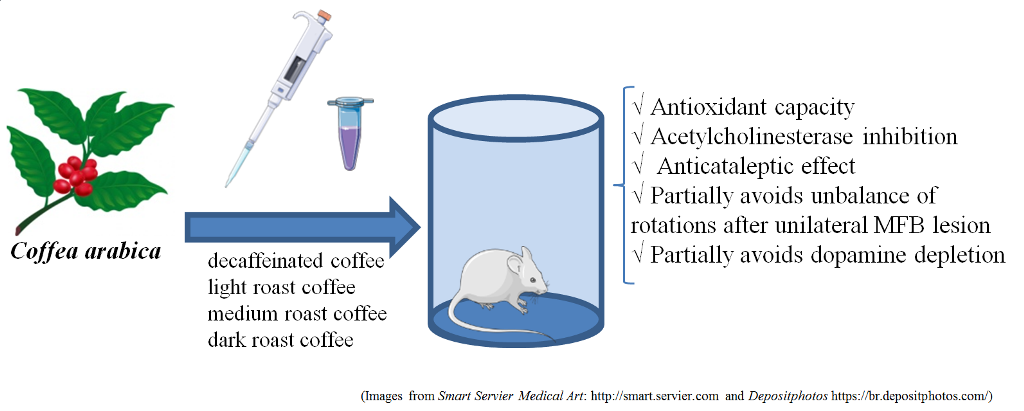Epidemiologic studies suggest an inverse correlation between coffee consumption and the occurrence of neurodegenerative diseases, but the role of caffeine and roasting degree are still matter of debate. The objective of this work was to evaluate the effects of caffeinated (light, medium, and dark roast) and decaffeinated instant coffee samples in acetylcholinesterase inhibition and antioxidant assays, as well as in animal models of Parkinson’s disease. Caffeinated coffees inhibited the acetylcholinesterase in much smaller concentrations than decaffeinated coffee. All coffee samples showed antioxidant capacity without relation with the caffeine content. Dopaminergic-like activity in the haloperidol-induced catalepsy test was observed with caffeinated coffee, but not in the decaffeinated sample. The medium roast coffee reduced the number of rotations of rats after methamphetamine administration on the 6-hydroxydopamine unilateral lesion of the medial forebrain bundle. However, the coffee treatment did not avoid the loss of dopaminergic neurons on substantia nigra pars compact and only the smallest dose of coffee was able to avoid the decrease of dopamine levels in the lesioned side of the striatum. Altogether, these results suggest that coffee exerts moderate pro-cholinergic and pro-dopaminergic effects and caffeine seems to be the main responsible for these effects.

